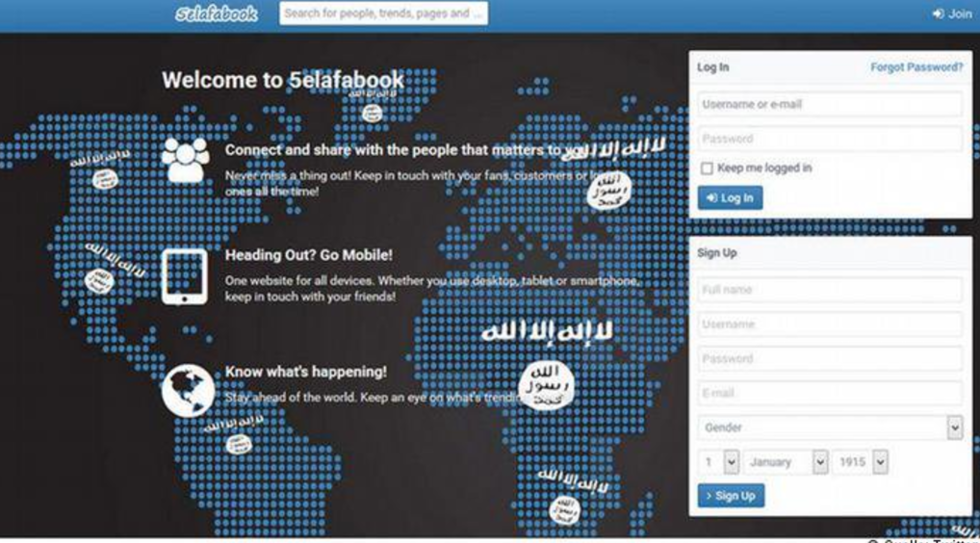Daeshbook: Europol launch probe into possible IS-built social media network

A probe has been launched by Europol into whether the Islamic State group have developed their own social media platform in a bid to sidestep authorities, according to its chief Rob Wainwright.
Law-enforcement officials from Belgium, Greece, Poland, Portugal and the US identified more than 2,000 IS linked items deemed "harmful and illegal" during a two-day operation.
"Within that operation, it was revealed IS was now developing its very own social media platform, its own part of the internet to run its agenda," Wainwright said at a press conference in London.
"It does show that some members of Daesh, at least, continue to innovate in this space," the Europol chief added.
Increased pressure from European governments and major technology companies to disrupt the militant group's online presence appear to have pushed IS and other terrorist organisations into darker corners of the internet.
"Efforts made by numerous online platforms to remove inappropriate content have driven supporters of terrorist groups to simultaneously use multiple platforms to promote terrorism and incite violence," Europol said in a statement.
"They have also been searching for new service providers to make sure their messages reach potential supporters, while a growing interest for platforms that do not require identification can be witnessed," the agency added.
British government officials have also warned of "other terrorist groups" including al-Qaeda and far-right groups like National Action in Britain attempting to mimic the "online tactics" of the IS.
Speaking in Washington in March, Joanna Shields, a Home Office minister and the British prime minister's Special Representative on Internet Crime and Harm, said: "in the past few weeks we have seen the Syrian al-Qaeda linked franchise Hayat Tahrir al-Sham (HTS) launch al-Ebaa, a professional media brand for its online communiques and videos."
"As the quality and quantity of Daesh output fluctuates, we must not lose sight of other extremist groups seeking to increase their online presence," Shields said during her address.
Two years ago, IS supporters set up its own social network called Khelafabook, amidst the face of bans from social media networks like Twitter and Facebook.
Khelafabook, which was built on a platform called SocialKit, has since been taken down.
Founded by an Iraqi man in the city of Mosul, with a backdrop of the world littered with IS flags, it was created to connect supporters of IS with militants fighting on the ground.
Twitter especially has become a battleground for IS propaganda, with the social media network closing down at least 90,000 accounts set up by the group.
But despite attempts to shut down accounts controlled by the militant group, Twitter is still struggling to stop content produced by IS sympathisers being shared on the platform.
Last month, Google faced a major advertising boycott by more than 250 major brands like over "extremist" video content found on Youtube.
The internet giant has since apologised after an investigation by the Times newspaper in London found that it had been promoting content allegedly posted by hate preachers, rape apologists and "homophobic preachers" banned from entering Britain.
New MEE newsletter: Jerusalem Dispatch
Sign up to get the latest insights and analysis on Israel-Palestine, alongside Turkey Unpacked and other MEE newsletters
Middle East Eye delivers independent and unrivalled coverage and analysis of the Middle East, North Africa and beyond. To learn more about republishing this content and the associated fees, please fill out this form. More about MEE can be found here.




